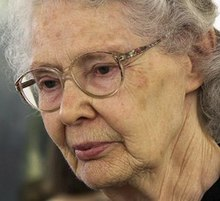 Read Helen Scott-Fordsmands entry in the Encyclopedia of Concise Concepts on Analogy in Mary Hesse.
Read Helen Scott-Fordsmands entry in the Encyclopedia of Concise Concepts on Analogy in Mary Hesse.
Mary Brenda Hesse was an influential British philosopher and historian of science, known for her work on the philosophy of science, models and analogies in scientific theories, and the epistemology of science. Born on October 15, 1924, in Reigate, Surrey, England, Hesse’s contributions significantly shaped contemporary understandings of scientific models and the nature of scientific explanation.
Hesse is perhaps best known for her book “Models and Analogies in Science,” published in 1963. In this work, she argued that models and analogies are essential to scientific reasoning and theory development. She contended that scientific models are not mere heuristic devices but play a crucial role in the conceptual framework of scientific theories. Her insights into the use of analogies in scientific practice influenced both philosophers and practicing scientists, highlighting the dynamic and interpretative nature of scientific inquiry.
Throughout her career, Hesse held various academic positions, including a significant tenure at the University of Cambridge, where she was a fellow of Wolfson College and later a professor of the philosophy of science. Her work continues to inspire and influence contemporary discussions on the nature of scientific inquiry, the role of models and analogies, and the epistemological foundations of scientific theories.
At the 2024 HOPOS Conference in Vienna several speakers will give a talk on Mary B. Hesse.
You cannot copy content of this page








